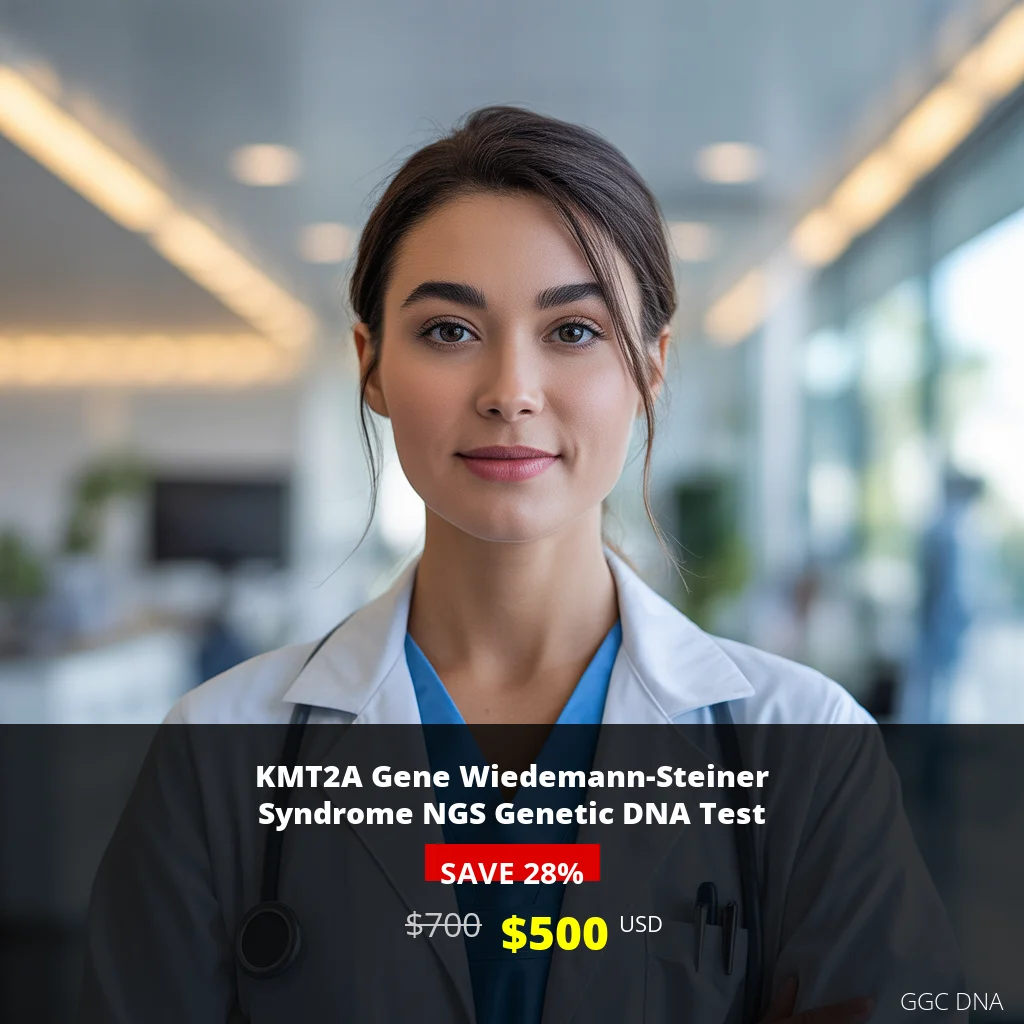KMT2A Gene Wiedemann-Steiner Syndrome NGS Genetic DNA Test
Comprehensive Genetic Testing for Developmental Disorders
The KMT2A Gene Wiedemann-Steiner Syndrome NGS Genetic DNA Test represents a significant advancement in pediatric genetic diagnostics, offering precise identification of mutations associated with Wiedemann-Steiner syndrome. This rare genetic disorder affects multiple body systems and requires specialized testing for accurate diagnosis and management.
What is Wiedemann-Steiner Syndrome?
Wiedemann-Steiner syndrome is a rare genetic condition characterized by distinctive facial features, developmental delays, growth abnormalities, and hypertrichosis (excessive hair growth). The syndrome results from mutations in the KMT2A gene, which plays a crucial role in regulating gene expression during embryonic development and throughout life.
Understanding the KMT2A Gene
The KMT2A gene provides instructions for making a protein that functions as a histone methyltransferase, essential for modifying chromatin structure and regulating gene activity. Mutations in this gene disrupt normal developmental processes, leading to the characteristic features of Wiedemann-Steiner syndrome.
What Does This Test Detect?
Our advanced NGS Genetic DNA Test specifically targets:
- Pathogenic variants in the KMT2A gene
- Missense, nonsense, and frameshift mutations
- Copy number variations affecting the KMT2A region
- Novel genetic variants with potential clinical significance
Who Should Consider This Test?
Clinical Indications and Symptoms
This test is recommended for individuals presenting with:
- Unexplained developmental delays or intellectual disability
- Distinctive facial features including long eyelashes, thick eyebrows, and downslanting palpebral fissures
- Growth abnormalities including short stature
- Hypertrichosis cubiti (excessive hair on elbows)
- Feeding difficulties in infancy
- Behavioral characteristics such as anxiety or autistic features
- Family history suggestive of genetic inheritance patterns
Benefits of KMT2A Genetic Testing
Comprehensive Diagnostic Advantages
- Accurate Diagnosis: Provides definitive identification of Wiedemann-Steiner syndrome
- Personalized Care Planning: Enables targeted interventions and management strategies
- Family Planning Guidance: Offers valuable information for genetic counseling and reproductive decisions
- Early Intervention: Facilitates timely access to appropriate therapies and support services
- Research Contribution: Helps advance understanding of rare genetic disorders
Understanding Your Test Results
Interpretation and Next Steps
Our comprehensive genetic counseling support helps you understand your results:
- Positive Result: Indicates the presence of a pathogenic KMT2A mutation, confirming Wiedemann-Steiner syndrome diagnosis
- Negative Result: Suggests that KMT2A mutations are not the cause of symptoms, guiding further diagnostic evaluation
- Variant of Uncertain Significance: Identifies genetic changes requiring additional research and family studies
All results are accompanied by detailed explanations and recommendations from our certified genetic counselors.
Test Pricing and Information
| Test Component | Price (USD) |
|---|---|
| Discount Price | $500 |
| Regular Price | $700 |
Additional Test Details
- Turnaround Time: 3 to 4 Weeks
- Sample Type: Blood, Extracted DNA, or One Drop Blood on FTA Card
- Methodology: Next-Generation Sequencing (NGS) Technology
- Specialty: Pediatric Genetics
- Department: Genetics
- Disease Category: Dysmorphology
Pre-Test Requirements
Before testing, we recommend:
- Complete clinical history documentation
- Genetic counseling session to create a detailed family pedigree
- Discussion of testing implications and potential outcomes
- Informed consent process
Nationwide Accessibility
We have diagnostic centers across the United States, serving patients in all major metropolitan areas including New York, Los Angeles, Chicago, Houston, Phoenix, Philadelphia, San Antonio, San Diego, Dallas, San Jose, and many more locations. Our network ensures convenient access to advanced genetic testing services regardless of your location.
Take the Next Step Toward Genetic Clarity
If you or your child are experiencing symptoms suggestive of Wiedemann-Steiner syndrome, our KMT2A Genetic DNA Test provides the answers you need for informed healthcare decisions. Our team of genetic specialists is ready to support you through every step of the testing process.
Call or WhatsApp us today at +1(267) 388-9828 to schedule your genetic counseling session and book your test. Take control of your genetic health with comprehensive, accurate testing from America’s leading genetics laboratory.






